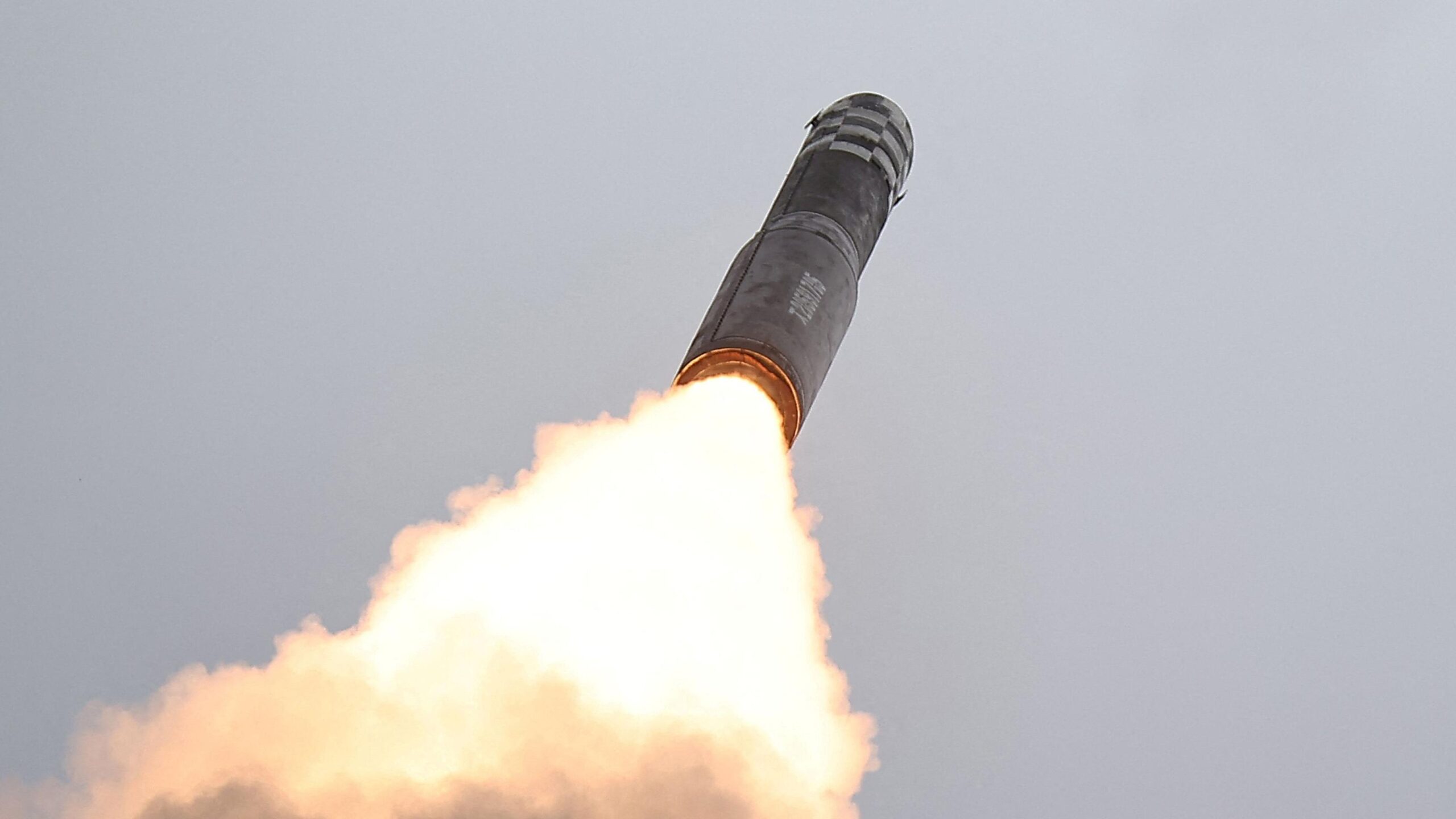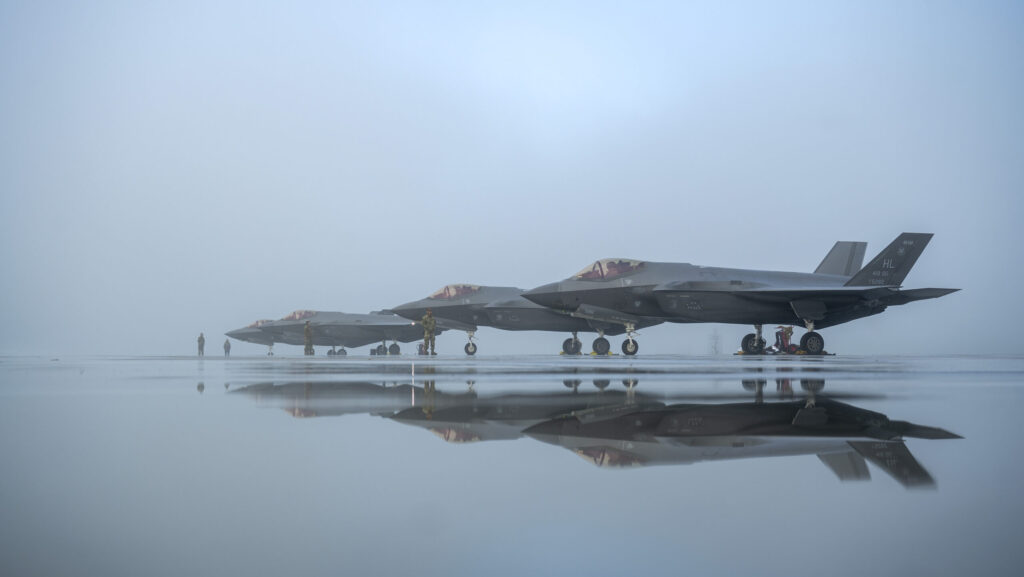The US Capitol. (Photo by Anna Rose Layden/Getty Images)
WASHINGTON — The under secretaries of the Army, Navy and Air Force today in a rare joint press conference warned of the devastating impacts a year-long continuing resolution (CR) would have on their services: Billions of dollars in funding becoming effectively unusable, top weapons programs stalled and numerous training exercises canceled to keep operations going.
“This is getting into the territory of the 2013 sequester in terms of fiscal impacts,” Navy Under Secretary Erik Raven told reporters at the Pentagon, referring to the automatic spending cuts enacted by the Budget Control Act of 2011 and the second- and third-order impacts that had on the military.
A CR means the Pentagon and other parts of the federal government receive funding commensurate with the previous year’s enacted budget. This is problematic because annual inflation erodes the services’ buying power. Additionally, “new starts” — programs that had no budget in the previous fiscal year — are unable to begin work.
For the Navy, it will result in $26 billion of funding “misalignments,” Raven said. The majority of the Pentagon’s funding is categorized into specific programs, and the services have to seek explicit permission from Congress to take funds from one program and assign it to another. A “misalignment” means that the Navy would have $26 billion in its accounts, but lack the authority to use those funds where they are needed.
One casualty, Raven said, would be the recently awarded maintenance availability for the submarine Boise (SSN-764), a boat that has been sidelined for years and, now that it finally has a contract inked to be fixed up, may once again be cast aside due to a lack of funds to pay the contractor.
“We’re talking about a $600 million shortfall that we would simply not be able to make up,” he said of Boise. “Munitions almost across the board. We’re seeing significant shortfalls because these were all priority areas that were built in the 24 budget.”
Munitions, which have been highlighted by lawmakers and Pentagon officials in the wake of the aid sent to Ukraine, is also a sticking point for the Army, said Under Secretary Gabe Camarillo.
Without an appropriations bill, the Army will struggle to fund sufficient production quantities “to be able to send that strong signal to give industry the incentive” to invest in its facilities and workforce.
Kristyn Jones, who is performing the duties of the Air Force under secretary, said a year-long CR would effectively stall the collaborative combat aircraft drone wingmen program, which recently inked competitive contracts with five major defense primes.
Jones also stressed the Space Force would be hit particularly hard by a year-long CR, and would see a 17 percent reduction to most of its accounts, excluding military personnel and operations and maintenance which are relatively small given the service’s size.
The under secretaries said operations such as the Army’s efforts to train Ukrainians and the Navy’s ongoing presence in the Red Sea would be a top priority to sustain as money gets tighter. But if new money doesn’t come from Congress, it’ll have to come from elsewhere.
“I think most commands right now [are] prioritizing operations. They’re going to have to look at other areas of [operations and maintenance spending] where they can potentially take some risks,” said Camarillo. I think Secretary [Christine] Wormuth spoke yesterday a little bit about looking at exercises and the degree to which we participate in some around the globe. We might have to scale some of that back in the absence of an appropriation this year.”
CRs have become so commonplace that the Pentagon has become adept at coping with them on an annual basis. For example, program managers will often avoid scheduling major contract awards in the first quarter of the fiscal year because they anticipate they may not have their full budgets when the date comes around.
But a year-long CR would be new ground, even for the Pentagon’s apolitical, career workforce. And the fact that Camarillo, Raven and Jones would opt to speak to the press together — a rare occurrence for any administration — to sound the alarm connotes the likely rising levels of concern within the Defense Department at what havoc will ensue if lawmakers fail to pass fresh appropriations bills for an entire year.
The remarks from the senior civilians come just weeks before the time of year the Pentagon traditionally rolls out its next budget request.
Jones said she has not heard anything to suggest the new budget’s publication will be stalled as a result of the ongoing political impasse on Capitol Hill that has prevented the Pentagon from receiving its 2024 budget. However, she also said the services built each budget with an assumption that they will receive the previous one.
“I would imagine depending on what happens with a CR and appropriation, we may have to look at how do we re-prioritize that funding to make sure that we don’t have execution challenges,” she said.





















Discussion about this post